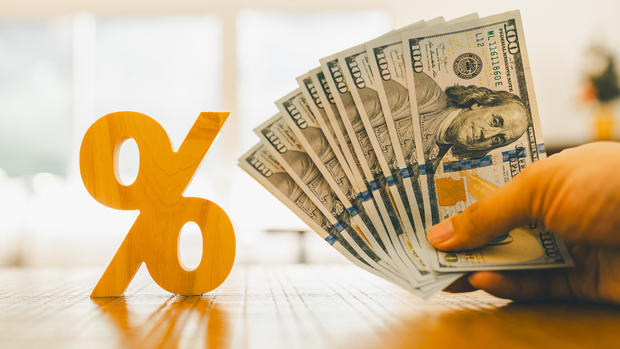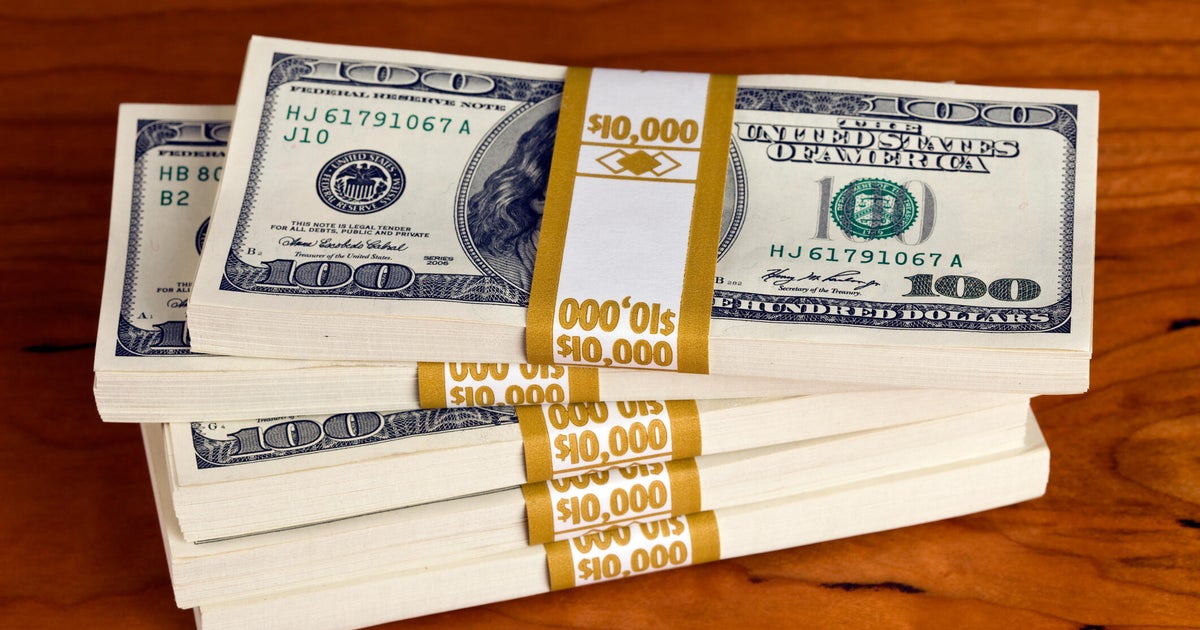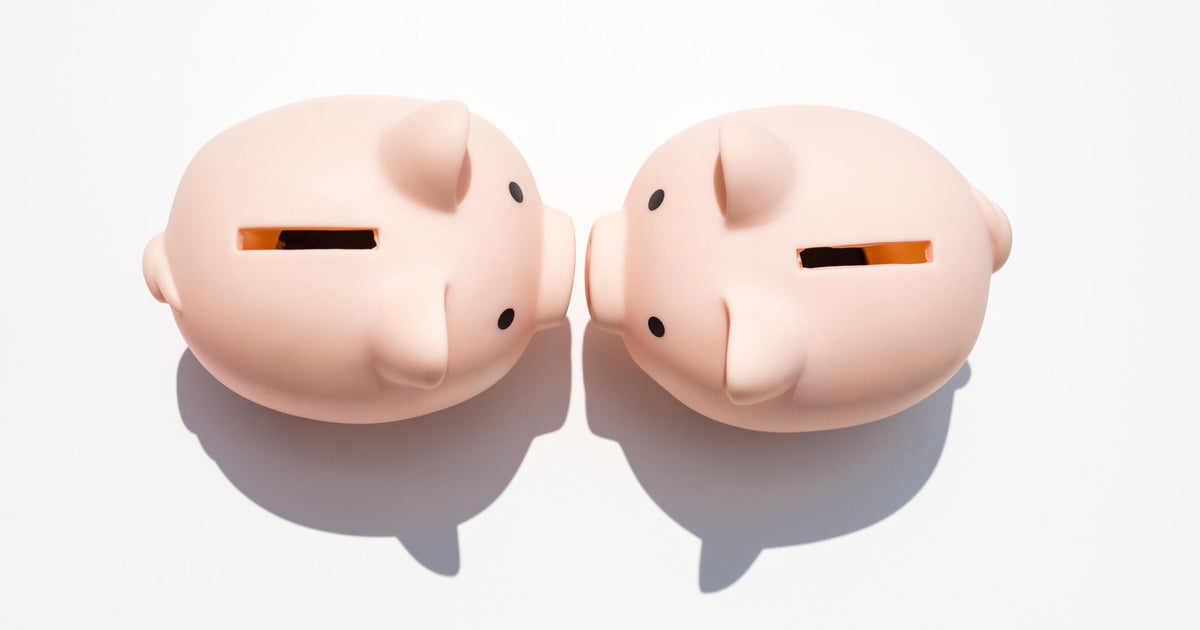CD early withdrawal penalties: Here's when experts say they're worth paying
Borrowers looking for lower interest rates will have to wait a little longer for any anticipated rate cut by the Federal Reserve. The Fed paused interest rates for the fifth consecutive meeting in March following February's Consumer Price Index report, which indicated an uptick to a 3.2% year-over-year inflation rate in February. And, the most recent inflation report, released this week, showed that at 3.5%, an even higher uptick in inflation occurred in March.
But while stubborn inflation and elevated interest rates are a thorn in the side for borrowers, they're a gift for savers with high-yield savings accounts and certificates of deposit (CDs). Deposit account holders have been enjoying high yields hovering near 5% for several months now, as the Fed aims to curb inflation with an elevated federal funds rate, which has resulted in higher savings returns. Many Americans are now locking in high CD rates now in case the Fed cuts interest rates in 2024 as predicted. A $10,000 36-month CD earning 5% APY could generate $1,565.25 in interest during its term.
However, the primary downside to CDs is that you'll likely incur an early withdrawal penalty if you pull the money out early to address an unplanned expense, financial emergency or for another purpose. These penalties vary by lender but typically require paying interest earnings over a specific period. For example, Ally Bank's early withdrawal penalty with its 12-month CD is 60 days worth of interest, while American Express' penalty for the same term is 270 days of interest.
While it's wise to try and avoid early withdrawal fees if you're saving money for a specific goal, sometimes it's a necessity. After all, everyone's financial situation is unique and, as several experts told us, there may be times when pulling out your cash is worth the early withdrawal fee.
Open a CD account online to take advantage of today's high rates.
CD early withdrawal penalties: Here's when experts say they're worth paying
Here's when experts say it may be worth paying for early withdrawal penalties:
If you transfer the funds to a higher-paying CD
CDs earn a fixed rate, which can be a double-edged sword depending on interest rate trends. Locking in high rates can benefit you if yields drop during your term. On the other hand, you could miss out on higher returns if your CD has a yield lower than the current market rates.
"It may be worth withdrawing funds from a CD to move into a higher-paying CD if the increase in interest rates significantly outweighs the early withdrawal penalty," says Taylor Kovar, founder and CEO at 11 Financial.
Kovar recommends analyzing the difference in interest rates between your current CD and the higher-paying CD, the remaining term of the CD and the amount of the penalty.
"If the potential earnings from the higher-paying CD outweigh the penalty and justify the move, it could be a good financial decision," Kovar says.
Open a CD that gives you the returns you deserve.
If you move the money to another investment
While CDs offer a safe place to stash your savings and are typically federally insured up to $250,000 by the FDIC or NCUA, they may underperform compared to other investment assets, such as the stock market or real estate.
For example, the S&P 500 has delivered an average annual stock market return of about 10% since it was established in 1957 through the end of 2023. That rate is roughly double the average yield of some of the best CDs currently available. Or, while the national average appreciation rate for a home typically falls between 3% and 5% and could include mortgage interest, your home also offers intrinsic value by providing you with a place to live.
So is it worth paying the CDs early withdrawal penalty to move your money into another investment? It depends on how the proceeds from the early redemption will be used, says Matt Willer, a partner at Phoenix Capital Group and a private asset investments expert.
"If it's a higher rate of return, it may be worthy of consideration, but if it's apples to oranges moving into a completely different asset class, you'll also want to look at tax treatment and other considerations outside of return," Willer says. "Generally speaking, there is an opportunity cost on your money, so having it tied up with inferior returns is not something I'd recommend."
If you use the funds to pay off high-interest debt
Another time it may be worth paying a CD's early withdrawal penalty is when you can use the funds to pay off high-interest credit card debt.
"If a CD is paying you 5% interest, but you are paying 25% interest on a credit card, you are losing money every month. You would be better off paying off that credit card [and] then rebuilding your savings," Kendall Meade, financial planner at SoFi, says.
Alternatively, you may qualify for an introductory 0% APR balance transfer card to consolidate your high-interest debt instead. Promotional periods typically range from 12 to 21 months, which may be long enough to repay your balance interest-free and keep your money in an interest-earning CD account.
The bottom line
CDs are often recommended as short-term savings vehicles ideal for achieving financial goals. For instance, if you want to purchase a home in two years, you might consider a 2-year CD so your money can earn interest until you're ready to put down a down payment. Additionally, locking in a long-term CD now may benefit you if the Fed follows through on multiple rate cuts in 2024. Securing a high interest rate from one of the best CDs might shield your savings from future rate drops.
Keep in mind, however, that no one can predict with certainty what will happen with interest rates, so carefully weigh the pros and cons of opening a CD account before proceeding. Also, consider consulting your financial advisor to make sure a CD aligns with your financial plan and long-term goals.




